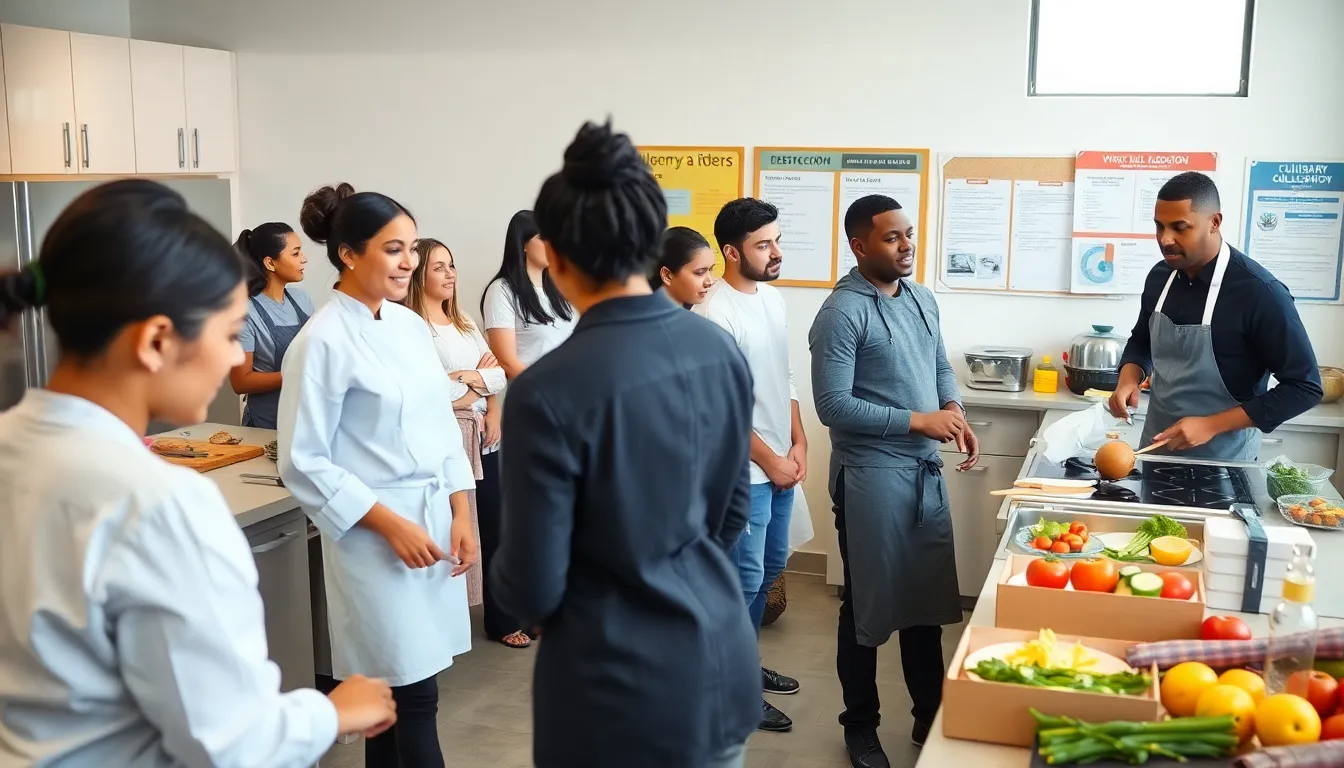Physical Address
304 North Cardinal St.
Dorchester Center, MA 02124

Dreaming of whipping up culinary masterpieces? Want to transform your kitchen creativity into a professional career? Getting into culinary school is your golden ticket. This guide will break everything down, from choosing the right program to preparing that stellar application. So, grab your apron and let’s sauté through the steps to enroll in the culinary world.

Culinary schools come in various shapes and flavors, much like the dishes they teach you to create. From community colleges with associate degrees to prestigious culinary institutes offering bachelor’s programs, there’s a culinary program for every aspiring chef.
First off, let’s discuss the different types of programs available. Whether you want to focus on baking, culinary arts, or hospitality management, you’ll find options catering to your interests.
Choosing an accredited culinary school ensures you receive quality education. Accreditation gives you confidence that your program meets industry standards. Why does reputation matter? Well, a school’s prestige can influence job opportunities post-graduation. Research top culinary schools and read reviews. A great reputation can open doors you didn’t even know existed.
Picking the perfect culinary school can feel like deciding which spice to add to your sauce, daunting yet essential. Here’s how to start the selection process:
It’s vital to understand what each school requires. Typically, you’ll need to provide transcripts, proof of your passion for cooking (hello, cooking portfolio.), and sometimes a culinary skills demonstration. Check each program’s specifics so you don’t miss any crucial details.
Your essays are your chance to showcase your personality. Use them to talk about what drives your culinary passion. Whether it’s that unforgettable meal cooked by a family member or a culinary adventure abroad, sharing personal anecdotes can make your application stand out.
Having someone vouch for your culinary skills can give your application a serious boost. Seek out recommendations from professionals in the culinary world, or even from instructors who can speak to your dedication and potential. A well-crafted letter could be the secret ingredient you need.
Ah, the interview. Cooking under pressure takes on a whole new meaning here. Culinary schools may require an admission interview, so preparation is key.
Your culinary resume is your ticket to stepping into the kitchen world. But how do you build one that shines?
Getting hands-on experience is crucial. Consider volunteering at local restaurants or catering events. Even part-time positions in food-related businesses count. Every experience adds flavor to your resume, making you appealing to culinary schools and employers alike.
These are golden opportunities where your culinary education meets real-world experience. Many culinary schools have partnerships with restaurants for internships, which allows you to learn directly in a professional setting. Not only do you gain invaluable skills, but you also build connections in the culinary world.
Just like a good sauce needs time to develop its flavor, building a network takes time too.
While networking, you may hear about internships that offer stipends or other paid opportunities. Every penny counts, especially when it comes to affording culinary school.
Look into culinary-specific scholarships and grants. Many organizations support aspiring chefs with financial aid, which can significantly reduce tuition costs. Do thorough research online and contact schools directly to find potential financial resources.
Navigating student loans and financial aid can feel overwhelming, but don’t let it deter you. Start with the Free Application for Federal Student Aid (FAFSA), as it helps you understand your financial options.